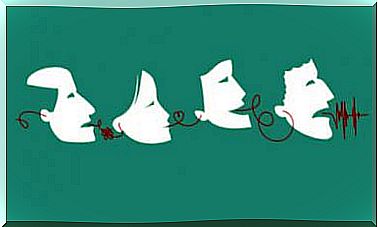Learning From The Unexpected

When the world is predictable and everything that exists in it behaves as expected, our attention diminishes, since everything happens just as we imagine. There are no surprises. However, when an event suddenly occurs that breaks our expectations, we pay as much attention to it as possible, and in some cases, we learn from the unexpected.
Thus, it can be affirmed that there is no learning without attention and that attention is more easily directed towards what surprises us. The surprise is therefore much easier to memorize or at least to capture our attention or interest.
In this article we will break down what and how to learn from the unexpected. We will also discover that this capacity is present almost from birth and that, without a doubt, it stands as an alternative to the classic conceptions of learning. Some psychologists and pedagogues take these processes into account.
Learning from the unexpected: general concepts
Sometimes science does not progress through the usual course of logic. Interestingly, the exact same thing happens in humans: learning from the unexpected is often much more efficient than learning from a predictable world.
Along these lines, researchers Stahl, A. and Feigenson, L. (2015) published an article in the journal Science in which they describe this phenomenon. In addition, they explain that babies as young as 11 months get bored when the world and objects behave in predictable ways.
The authors observed that the babies quickly stopped paying attention to a ball that was moving in a predictable way. However, in a different experimental condition, they focused a lot of attention on a ball that was moving in an unusual way, even going through the walls. Let’s go deeper.

We Are Born Scientists: What to Learn from the Unexpected
Somehow at birth we seem to behave like scientists. In this sense, the babies who participated in the aforementioned study did not limit themselves to learning from the unexpected (as happened with the ball that went through walls), but also quickly wanted to experiment with those objects of unexpected behavior.
Thus, in the same way that scientists, when observing a fact, want to test their hypotheses to experience what happens, babies behave in a similar way with what they observe.
For example, when babies saw a ball go through a wall, they would try to catch it. In addition, once with her in their hands, they squeezed and beat her. Would you like to verify that it was a solid object? Did you want to experiment with the ball?
In another experimental condition, infants saw a ball move and go through a hole, but without actually falling into it. Anyone would have expected the ball to fall through the hole, but it didn’t. That was totally unexpected for the babies.
In this case, as soon as they had the opportunity, the babies went to the ball and began to experiment with it, throwing it several times on the ground, as if they wanted to check if it obeyed the laws of gravity. It is not surprising?
The mysteries of learning from the unexpected
For science, the mysteries of learning from the unexpected are still far from being explained in babies. Why is this happening? Do we have some kind of innate programming to understand the laws of physics? This issue would generate a heated debate between natives and environmentalists. Who will be right?
It is quite surprising that babies at this young age seem to detect what defies the laws of physics. Not only that: they also tend to explore and try to understand “physically” unexpected events.
Thus, in the research of the aforementioned authors, the existence of some type of innate laws of physics seems to be demonstrated , since it is extremely unlikely that babies of this age can make logical-causal inferences as if they had advanced reasoning.

Conclusions on the phenomenon of learning from the unexpected
As the aforementioned study points out, the main conclusions about the phenomenon of learning from the unexpected can be summarized as follows:
- Babies try to learn more about the new, the unexpected, than what breaks their schemes.
- Furthermore, they seem to discriminate between what is predictable and what is unexpected. Obviously, they pay more attention to the latter.
- In fact, it seems that babies can make predictions about what will happen to an object, so that if something they think is going to happen does not happen, they are surprised and go on to try to explore the phenomenon.
- When predictions about events turn out to be different than expected, babies explore that dissonance in order to learn more about the world around them.
- To date, human learning capacity had been underestimated, since the circumstances for this new and different type of learning already exist in babies; that is, to learn from the unexpected.
In light of these data, will we remain anchored in the old paradigms of human learning?









